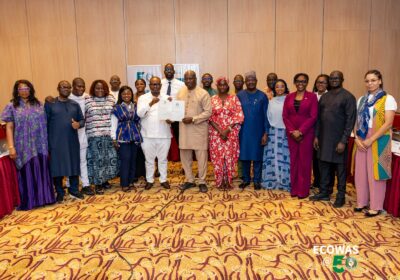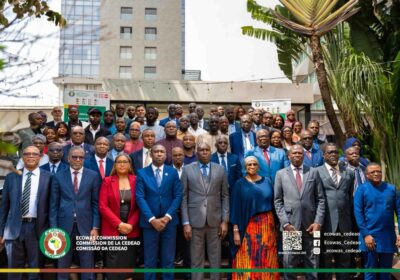Nigeria, Rwanda Sign Historic Tax Treaty to Boost Cross-Border Investment.
By Raymond Enoch
In a landmark step toward regional economic integration, Nigeria and Rwanda have signed a Double Taxation Avoidance Agreement (DTAA) aimed at removing tax barriers for businesses operating across both countries.
The agreement was formalized during a high-level meeting in Abuja on Thursday, with Nigeria’s Minister of Finance and Coordinating Minister of the Economy, Wale Edun, and Rwanda’s Minister of Finance and Economic Planning, Dr. Yusuf Murangwa, representing their respective governments.
“This agreement is a critical tool for deepening trade, eliminating tax obstacles, and encouraging capital flow between our nations,” said Edun. He noted that the DTAA is in line with Nigeria’s broader reforms to improve the business climate and attract foreign investment.
Dr. Murangwa emphasized that the treaty reflects Rwanda’s commitment to fostering fiscal cooperation and aligns with continental goals under the African Continental Free Trade Area (AfCFTA).
According to the Treaty which has key features like, eliminating Double Taxation: Ensures that individuals and companies do not pay tax twice on the same income earned in both jurisdictions. Also the Treaty prevents Tax Evasion and Avoidance: Introduces transparency protocols in line with global tax standards.
Encourages Investment Flows: Reduces tax uncertainty for investors operating in both Nigeria and Rwanda.
Supports AfCFTA Vision: Reinforces regional trade integration and policy harmonization across Africa.
The DTAA will specifically cover income from business profits, dividends, interest, royalties, and capital gains, setting clear tax rights for both countries and eliminating legal ambiguities that have previously deterred investors.
Economic analysts say the treaty signals a growing trend among African nations to modernize tax policies, making intra-African trade more attractive amid global shifts toward regional value chains.
The agreement is expected to take effect following ratification by both countries’ legislative bodies.
Business leaders across West and East Africa have welcomed the treaty, calling it a “game changer” that will unlock new opportunities in key sectors such as fintech, manufacturing, agriculture, and logistics.
As Africa looks inward to build resilient, interlinked economies, the Nigeria–Rwanda tax pact is being hailed as a model for future bilateral agreements under the AfCFTA framework.









